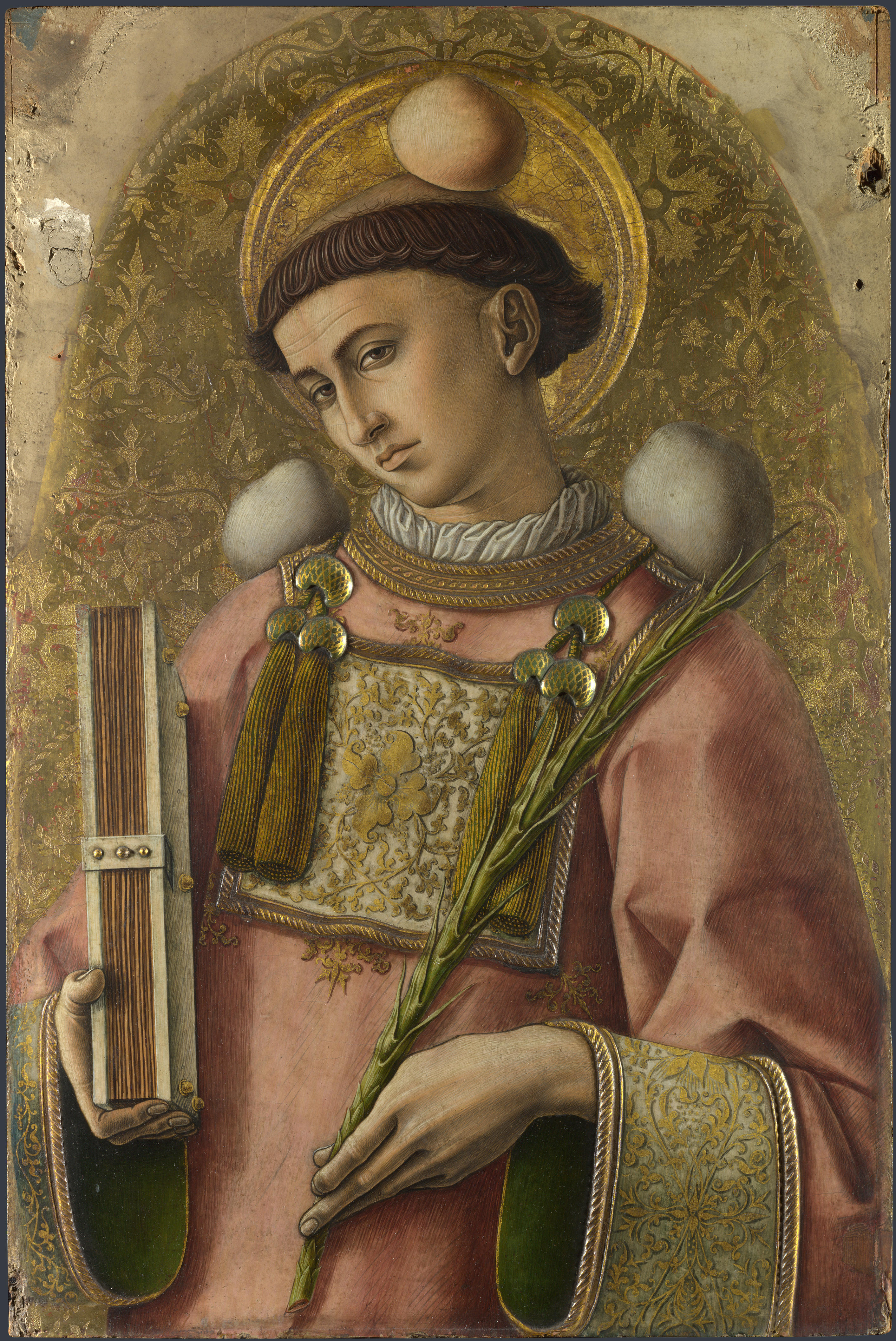Acts 6:1-7
Ps 33:1-2, 4-5, 18-19
1 Peter 2:4-9
John 14:1-12
 More and more lay Catholics are finding opportunities for holiness by living out the liturgical calendar. Books and blogs help plan meals, crafts, and activities highlighting a particular saint on his or her feast day. This particular form of piety really appeals to me, and not just because I think a rice crispy treat grotto is a particularly tasty way of honoring Our Lady of Lourdes. What’s neat about living out the liturgical calendar is that you really come to appreciate the many different paths of holiness traveled by each of Christ’s saints. There are martyrs, mystics, founders and foundresses, mothers and fathers (though not enough!), activists, and servants. To see the great diversity in the saints, we might look at the three great Teresas: Teresa of Avila, the no-nonsense reformer of the Carmelites, Therese of the Child Jesus (the Little Flower), whose little way of doing small things with great love attracted so many this past century, and Blessed Mother Teresa of Calcutta, who embraced radical solidarity with the poor and clung to her faith during four decades of darkness and spiritual desolation.
More and more lay Catholics are finding opportunities for holiness by living out the liturgical calendar. Books and blogs help plan meals, crafts, and activities highlighting a particular saint on his or her feast day. This particular form of piety really appeals to me, and not just because I think a rice crispy treat grotto is a particularly tasty way of honoring Our Lady of Lourdes. What’s neat about living out the liturgical calendar is that you really come to appreciate the many different paths of holiness traveled by each of Christ’s saints. There are martyrs, mystics, founders and foundresses, mothers and fathers (though not enough!), activists, and servants. To see the great diversity in the saints, we might look at the three great Teresas: Teresa of Avila, the no-nonsense reformer of the Carmelites, Therese of the Child Jesus (the Little Flower), whose little way of doing small things with great love attracted so many this past century, and Blessed Mother Teresa of Calcutta, who embraced radical solidarity with the poor and clung to her faith during four decades of darkness and spiritual desolation.
As you study the saints and celebrate their lives, you can’t help but ask “What kind of saint might I be?” For most of us, this is a depressing question. We don’t live extraordinary lives. We work, we take care of children, we eek out a little time here and there for service and charity. Most of us feel, I suspect, that we are just trying to make it every day. Sainthood seems a distant, unreachable goal if we take it seriously as a goal at all.
But the thing is that we are called to holiness, to sanctity. The saints remind us that there is no one way to do this. This message is beautifully echoed in our readings for this Sunday. In our first reading from Acts, we hear how the apostles dedicated duties of service to Philip and others who would be the church’s first deacons. They announce, “It is not right for us to neglect the word of God to serve at table.” It is not that serving the needy is less noble than preaching and evangelism; it is simply that the path to holiness the apostles are called to is different than that of the deacons. Our second reading highlights the way in which all are called to holiness by describing God’s church as “a chosen race, a royal priesthood, a holy nation, a people of his own.” In Our Gospel, Jesus proclaims “In my Father’s house, there are many rooms.” There are, in other words, many ways to dwell as a saint in God’s kingdom.
We don’t, however, always do a great job in acknowledging and appreciating the different paths of holiness available to us. Emily wrote a few weeks ago about the problems with the canon of saints. There is a paucity of lay people, a scandalous proportion of white Europeans, and some rather questionable legends. But this need not lead us to the conclusion that veneration of the saints is irrelevant. Emily concludes with a quote from Thomas Bokenkotter:
People still need saints: men and women whose lives are inspiring examples of Christian commitment and signs of God’s grace in the world…. The Church obviously needs such heroes, courageous spirits who not only witness to the vitality of the Christian tradition but provide models for new ways of living it.
It would be wonderful to have more saints living the life I am leaving. I sometimes wish I had more stories of saints yelling too much at their toddlers or struggling to carve out time for prayer while waiting on hold with the healthcare.gov folks. I want those stories so that I can be reassured that holiness is possible for me too. The saints aren’t perfect, but they do the work of God who is perfect, and I need reminders of this as it pertains directly to my own life.
However, while we wait for the canon of saints to more accurately reflect the diversity of Christ’s body, we need to be living as the saints we might wish for. We do not need to let our state of life be an excuse for our failure to be holy. We need to recognize that the saints are not different kinds of people than us, but rather point to the type of people all of us, regardless of our state in life, are called to be. As we hear in our send reading from 1 Peter: “Let yourselves be built into a spiritual house to be a holy priesthood to offer spiritual sacrifices acceptable to God through Jesus Christ.” How do we do this? By doing our ordinary, mundane actions for Christ. Sure, we might not be able to get through morning prayer because a sick kid threw up on all the sheets. But as we wash off the vomit, we can offer that up as the pleasing aroma of sacrifice to Christ. We may not be able to commit to regular service because our jobs and family responsibilities leave virtually no time. But we can work to promote the dignity of our colleagues and coworkers and family members in the way we treat them on a regular basis. We may not be able to set up camp among the poorest of the poor because, quite frankly, it isn’t reasonable with a spouse and kids, but we can work on living simply, giving more, and sacrificing some of our luxuries and wants to live in greater solidarity with the poor around us. The Church as a body is still trying to figure out what a lay saint looks like. We lay should, by the lives we live, be helping her out.
There is an old quippy phrase: “Be the change you want to see.” We might rephrase it, “Be the saint that you want to revere.”


